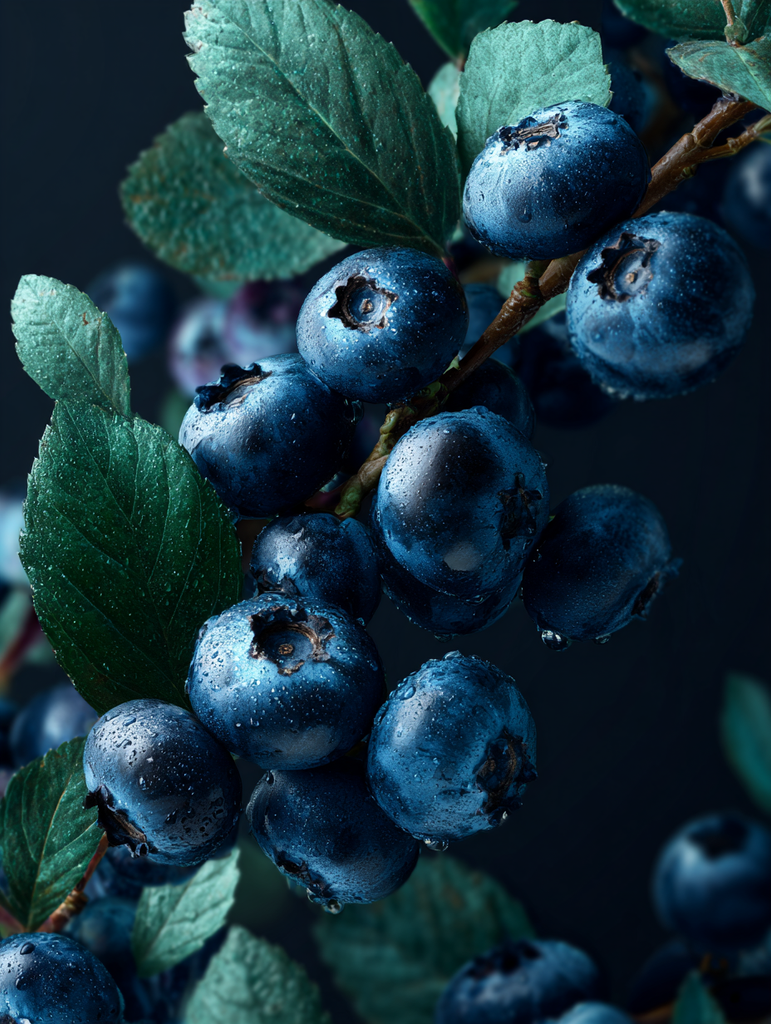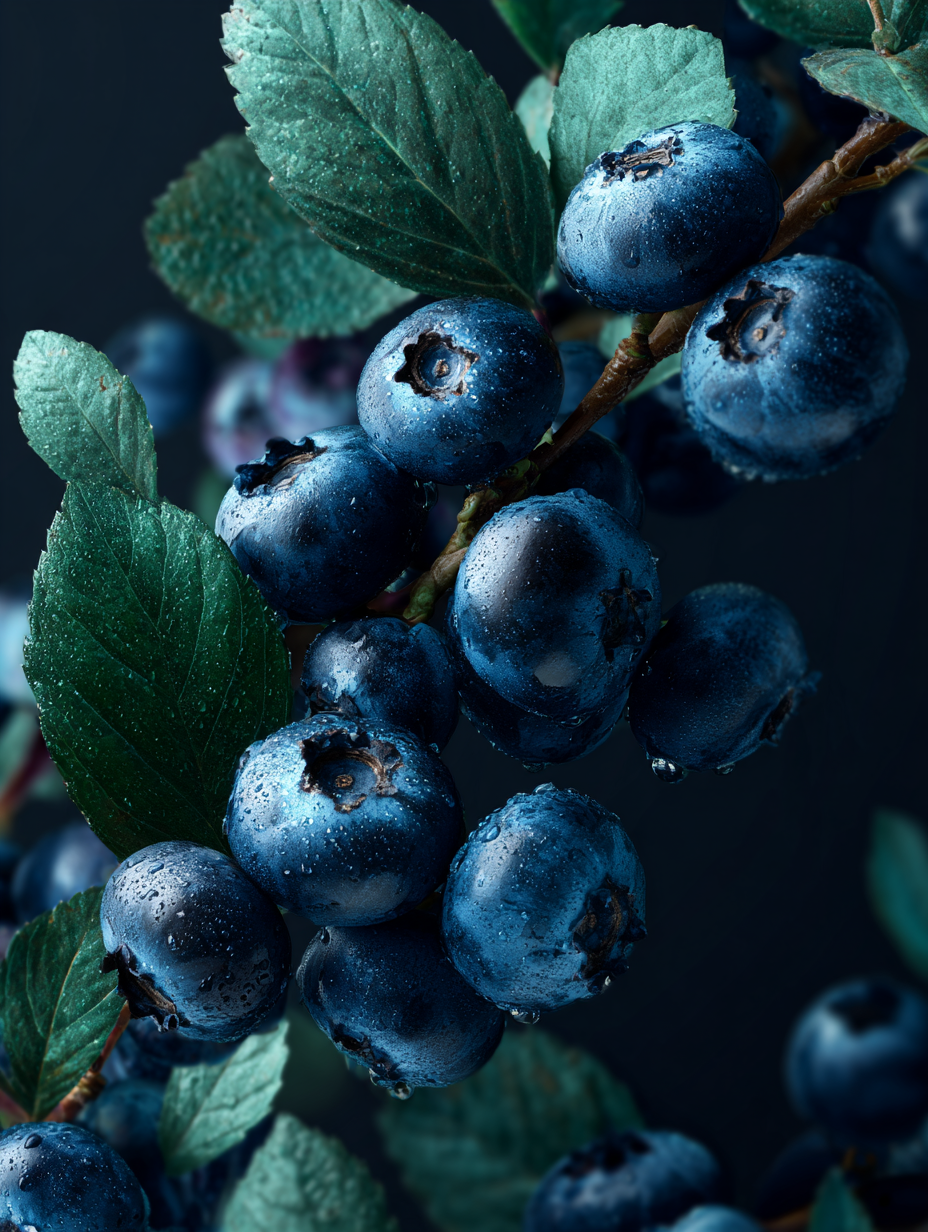Your Cart is Empty
The Ultimate Guide to Blueberries: Health Benefits and Fun Facts
Blueberries are more than just a delicious superfood. Packed with essential nutrients, ...
READ MORE
Blueberries are more than just a delicious superfood. Packed with essential nutrients, antioxidants, and gut-friendly fiber, they offer numerous health benefits that support everything from brain function to heart health. In this guide, we'll explore lesser-known dietary information about blueberries, their surprising health benefits, and fun facts that make them even more fascinating.
Blueberries are an excellent source of manganese, a crucial mineral for bone development, metabolism, and wound healing. Just one cup provides about 25% of your daily manganese needs, helping maintain strong and healthy bones.
Despite their natural sweetness, blueberries have a low glycemic index (GI) of 53, meaning they don’t cause rapid blood sugar spikes. They contain bioactive compounds that improve insulin sensitivity, making them a great choice for people with diabetes or those managing their blood sugar levels. A University of Michigan study on rats found that feeding the rats powdered blueberry lowered abdominal fat, triglycerides, and cholesterol while improving fasting glucose and insulin sensitivity.
Blueberries are among the richest sources of anthocyanins, powerful antioxidants that help protect brain cells and enhance memory function. Regular consumption may help reduce the risk of neurodegenerative diseases like Alzheimer’s and dementia.
One cup of blueberries contains about 4 grams of fiber, which is more than a banana! Fiber helps support digestive health, gut bacteria balance, and healthy cholesterol levels.
Blueberries contain about 36% of the daily recommended intake of vitamin K per cup. Vitamin K plays a vital role in blood clotting, bone health, and heart health.
Blueberries contain prebiotic fibers, which feed good gut bacteria, supporting a healthy microbiome. A well-balanced gut can improve digestion, immunity, and even mental health.
When it comes to antioxidant power, blueberries outrank strawberries, apples, and oranges. Their ORAC (Oxygen Radical Absorbance Capacity) score is 4,669, making them one of the best foods for fighting oxidative stress and inflammation.
Blueberries contain quercetin and kaempferol, flavonoids that help reduce inflammation, lower blood pressure, and support heart function. Studies show that eating blueberries daily can reduce heart disease risk by up to 15%.
Blueberries can help reduce muscle soreness and inflammation after exercise. Studies suggest that consuming them before and after workouts may speed up muscle recovery and improve overall endurance.
Research suggests that blueberries may influence genes involved in fat metabolism, potentially helping reduce abdominal fat and preventing obesity-related health issues. A 2010 study published in The Journal of Nutrition found that obese adults with prediabetes improved insulin sensitivity by drinking blueberry smoothies, suggesting that blueberries can make the body more responsive to insulin.
Some Native American tribes believed blueberries were a gift from the Great Spirit, because of the five-pointed star shape on the blossom end of the fruit. Native Americans dried blueberries for winter and used them to make pemmican, a high-energy food made of dried blueberries, meat, and fat.
The deep blue-purple color comes from anthocyanins, the same antioxidants responsible for their health benefits. When crushed, blueberry juice appears reddish-purple rather than blue.
Studies suggest that anthocyanins in blueberries may enhance night vision by supporting rhodopsin regeneration, a pigment necessary for seeing in the dark.
Blueberries have a natural, waxy coating called the bloom, which acts as a protective layer, shielding them from UV rays and moisture loss.
Early settlers and Native Americans used blueberries to dye textiles, baskets, and even paint, thanks to their long-lasting deep purple pigment.
The U.S. produces more blueberries than any other country, with Maine leading in wild blueberry production and Michigan as the top producer of cultivated varieties.
Unlike most berries, fresh blueberries float in water because of their tiny air pockets, which also help them resist freezing damage.
From their brain-boosting anthocyanins to their heart-protecting flavonoids, blueberries are a nutritional powerhouse that can enhance overall health. Plus, their fun and surprising history makes them even more fascinating!
Follow us for more health tips and superfood secrets!
Whether you add them to your morning smoothie, yogurt, oatmeal, or enjoy them fresh, these tiny but mighty berries are worth incorporating into your diet daily.
Want the taste and benefits of blueberries year-round—without the mess or spoilage?
👉Try Nutrigazm’s Adaptogenic Protein – Blueberry Bliss for a plant-based protein shake containing real freeze-dried blueberry powder, hormone-balancing adaptogens, and collagen stimulating nutrients.


Blueberries are more than just a delicious superfood. Packed with essential nutrients, ...
READ MORE
Strawberries are more than a sweet snack—they’re a low-sugar, antioxidant-packed superf...
READ MORE
In our modern, globalized world, the average person has access to an unprecedented vari...
READ MORE